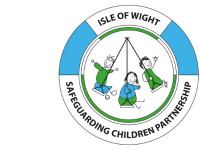Resources
Below are a number of resources to support community and voluntary organisations. If you have a resource that you feel would benefit wider organisations, please email hscp@hants.gov.uk.
The Disclosure and Barring Service (DBS) protects the public by helping employers to make safer recruitment decisions, and by preventing individuals who pose a risk to vulnerable groups from working in certain roles.
The different types of DBS checks available and when to make a barring referral are outlined below:
An employer may request a DBS check as part of their safer recruitment practices, but these should not be used in isolation to assess a person’s suitability for a role. The level of check that can be applied for will depend on the work being undertaken as legislation determines eligibility for standard and enhanced level checks. Where an applicant’s role would not provide eligibility for a standard or enhanced level check, they can always be asked to apply for a basic DBS check.
The DBS also offers the Update Service which is an online subscription service that provides employers with the opportunity to check the status of an existing standard or enhanced DBS certificate. With the individual’s consent an employer can carry out an instant online status check for free.
In addition to providing DBS certificates, the Disclosure and Barring Service maintains the Adults’ and Children’s Barred Lists. These are lists of individuals who are not allowed to work in regulated activity with vulnerable groups.
Regulated activity providers (employers or volunteer managers of people working in regulated activity in England, Wales and Northern Ireland) and personnel suppliers (employment agencies, employment business, or educational institutions) have a legal duty to refer to DBS where certain conditions are met. This applies even when a referral has also been made to a local authority safeguarding team or professional regulator.
If you are a regulated activity provider or fall within the category of personnel supplier, you must make a referral when both of the following conditions have been met:
Condition 1
- You withdraw permission for a person to engage in regulated activity with children and/or vulnerable adults. Or you move the person to another area of work that is not regulated activity.
This includes situations when you would have taken the above action, but the person was re-deployed, resigned, retired or left.
Condition 2
You think the person has carried out one of the following:
- Engaged in relevant conduct in relation to children and/or adults. An action or inaction has harmed a child or vulnerable adult or put them at risk of harm, or,
- satisfied the harm test in relation to children and/or vulnerable adults. For example, there has been no relevant conduct but a risk of harm to a child or vulnerable still exists, or,
- been cautioned or convicted of a relevant (automatic barring either with or without the right to make representations) offence.
More information on when and how to make a barring referral to the DBS can be found on the GOV.UK website.
Kelly Matthews, Regional Outreach Adviser (South East) for DBS, supports organisations and networks of all sizes and across all sectors with DBS related queries. Kelly can support organisations with queries around eligibility for DBS checks and making barring referrals. Email: Kelly.Matthews@dbs.gov.uk.
The After-school clubs, community activities and tuition: safeguarding guidance for providers offers advice on what policies and procedures providers should have in place for:
- health and safety
- safeguarding and child protection
- staff suitability
- governance
It covers out-of-school settings such as:
- community activities – for example, youth clubs
- before- and after-school clubs
- holiday clubs
- supplementary schools – for example, language, cultural and religious
- private tuition
- music lessons
- sports training
Safeguarding for charities and trustees outlines your responsibilities to keep everyone who comes into contact with your charity safe from harm, including volunteers, staff and beneficiaries.
The NSPCC’s Child Protection in Sport Unit works to safeguard children in sport.
Tutors can become an important part of a child or young person’s life. Over a period of time tutors can build up a strong, trusting relationship with children and their families and play a key role in providing support.
The NSPCC has put together some short films and supporting information about the safeguarding and child protection measures tutors need to have in place.
Faith-based groups and places of worship play a major role in the lives of many children and young people. This means safeguarding must be a key consideration in all faith settings.
The NSPCC have developed resources on how to approach safeguarding from within the beliefs, teachings and cultural context of faith communities
Statutory guidance on inter-agency working to safeguarding and promote the welfare of children.
The NSPCC’s introductory guide to safeguarding and child protection for the voluntary sector is written for leaders of voluntary, community and faith groups and
organisations working with children and
young people aged 0–18.
Both the Hampshire and Isle of Wight Safeguarding Children Partnership websites contain additional information and resources on a range of safeguarding themes. For more information or to learn more about a specific issue you can visit the sites using the links below:

